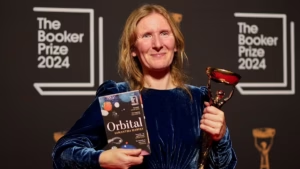Meet the Indian Women Behind the Success of the James Webb Telescope


NASA’s new James Webb Space Telescope showed us the deepest images of the universe unlike ever before and behind its success, there are two Indian women.
Webb’s 6.5-metre-wide mirror is the largest ever launched into space, and in combination with its infrared detection capabilities allows Webb to see many astronomical phenomena in unprecedented detail.
The Webb telescope is undoubtedly a revolutionary invention and three Indian scientists to are part of the team. Amongst them, are two women scientists who have left the world speechless with their remarkable work. They are Dr. Hashima Hasan and Kalyani Sukhatme.
Kalyani Sukhatme worked as the Project Manager for the Mid-Infrared Instrument (MIRI), one of the four science instruments on the telescope.
Raised in Mumbai, she completed her Bachelor of Technology (BTech) from IIT Mumbai. After that, she went on to earn her Master’s and Doctorate degrees in physics from the University of California. In 1998, she began working as a postdoctoral fellow at NASA’s Jet Propulsion Laboratory and is currently employed at NASA’s Jet Propulsion Laboratory. In April 2010, she took over as MIRI project manager at JPL. She has helped to advance the technology of infrared detectors. In 2012, she was conferred with the European Space Agency’s James Webb Space Telescope award for significant achievement.

Dr. Hashima Hasan is the James Webb Space Telescope’s Deputy Project Scientist. This Lucknow-born scientist is in charge of monitoring and managing the telescope’s science programme. She ensures that “its mission remains feasible and consistent with NASA’s strategic objectives.”
Dr Hasan discussed how she became interested in space in a NASA video.
“I grew up in India and became interested in space when my grandmother took us all to the backyard to see Sputnik.” I was five years old at the time. “I was very excited and wanted to be a scientist,” Hasan said. Later, she followed her childhood dreams and went to study at the Tata Institute of Fundamental Research (TIFR) in Mumbai after completing her undergraduate studies at Aligarh Muslim University. Besides, she was also employed at the Bhabha Atomic Research Centre and Oxford University awarded her a doctorate in Theoretical Nuclear Physics.








